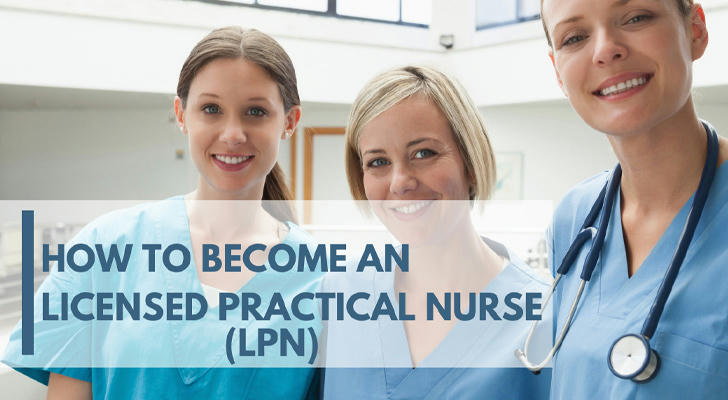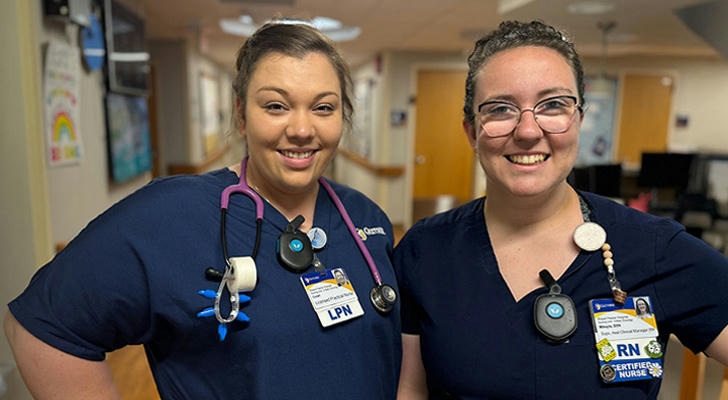How Can I Become An LPN Through A Government-Supported or Accredited LPN Training Program?
If you're looking for a stable, meaningful career in healthcare but are juggling work, family, or financial obligations, you're not alone. Many adults want to break into the medical field but face barriers like time and cost. Fortunately, government-supported Licensed Practical Nurse (LPN) training programs are designed to make that transition easier by providing flexible, affordable, and career-focused education options. These programs are part of a national effort to expand the healthcare workforce by offering a path for adults ready to make a change.

👩⚕️ Why Consider a Career as an LPN?
High Demand: LPNs are essential across hospitals, clinics, long-term care facilities, and home healthcare settings. You’ll perform vital hands-on care like checking vital signs, administering medications, and assisting with patient hygiene.
Strong Job Growth: According to the U.S. Bureau of Labor Statistics, over 40,000 new LPN positions are projected annually, with median annual salaries ranging from $48,000 to $60,000.
Long-Term Stability: LPN roles offer flexible hours, job stability, and the chance to advance in nursing. Many LPNs use their experience as a stepping stone to become Registered Nurses (RNs).
🏛️ Government Support Makes Training More Accessible
One of the biggest advantages of today’s LPN programs is the increasing government support, which eases the financial burden of going back to school. Government-backed initiatives provide:
Financial Assistance: Tuition support, low-cost tuition, and help with related expenses. Many programs are partially funded by the government to reduce the financial strain.
Flexible Learning Options:
Evening and weekend classes
Blended learning (online and in-person)
Community-based clinical placements, often near your workplace or home
Academic and Career Support: Many programs offer tutoring, mentorship, career coaching, and job placement assistance to ensure your success.
🕒 Flexibility: Study at Your Own Pace
One of the key features of government-supported LPN programs is flexibility, specifically designed for working professionals:
Evening and Weekend Classes: Balance work and education by taking classes outside of regular business hours.
Hybrid Learning: Complete coursework online and attend in-person clinical sessions at convenient times.
Community Clinical Placements: Some programs partner with local healthcare facilities, allowing students to do clinical practice near their homes or jobs.
This structure reduces the pressure of choosing between income and education, allowing you to advance your career without sacrificing your current job.

💡 Additional Support to Make Your Journey Easier
In addition to tuition assistance, many programs offer extra help, such as:
Discounted Textbooks and Materials
Help with Licensing or Exam Fees
Access to Job Fairs and Networking Opportunities
Scholarship Guidance
Some local governments also collaborate with healthcare employers to offer on-the-job training or prioritize graduates for job openings, ensuring a smoother transition from training to employment.
📊 Age-Based Suitability Guide for LPN Training Programs
| Age Group | Characteristics & Reasons for Suitability | Advantages in LPN Training | Common Goals |
|---|---|---|---|
| 18–30 | Energetic, adaptable, able to handle intensive training | Quickly adapts to clinical skills; gains experience easily in fast-paced medical environments | Build a long-term healthcare career, future path to becoming an RN |
| 31–45 | Career-stable or in transition; motivated learners | Strong learning purpose; more mature understanding of healthcare roles | Career change, secure stable income and medical benefits |
| 46–55 | Seeking stability; wants to stay competitive in the workforce | Strong communication skills, ideal for patient interaction and support | Secure a stable role, enhance financial and life stability |
| 56–65 | Brings life experience; suitable for light to moderate care | Excels in elder care, chronic disease management, and supportive care roles | A flexible second career or meaningful part-time employment |
| 65+ | If physically able, suitable for lighter care roles | Emotionally steady, patient, well-suited for long-term care environments | Re-entering the workforce post-retirement or seeking part-time healthcare involvement |
🧾 Who Is Eligible for Government-Supported LPN Programs?
Eligibility varies by state, but generally includes:
U.S. citizenship or legal work authorization
A high school diploma or GED
Completion of an entrance assessment or pre-screening test
Meeting income or employment-related criteria (such as being underemployed, or a displaced worker)
Many programs prioritize applicants from underserved communities, military veterans, or individuals already working in entry-level healthcare positions. Even if you haven’t been in school for years, these programs often provide academic refreshers and tech support to help you succeed.
🎯 What Can You Expect After Graduation?
Once you complete your LPN training and pass the NCLEX-PN licensure exam, you’ll be ready to begin your career. Graduates often find work in:
Long-term care facilities
Rehabilitation centers
Outpatient clinics
LPNs are highly sought after, and many programs offer career services to connect you directly with employers, ensuring a smooth transition into the workforce.
Over time, many LPNs pursue further education to become Registered Nurses (RNs) or specialize in areas like pediatric or geriatric care. Government programs often support continued learning, helping you build a long-term career.
🙋 Real Stories from Real People
Across the country, people from all walks of life are using these programs to create lasting change:
“The program gave me the flexibility I needed. I worked part-time while studying and finished in under two years. Now I’m working at a local clinic and finally have a career I love.” — Tanya R., LPN, Georgia
“As a singledad, I needed something that wouldn’t take me away from my kids. The evening classes and government assistance made it all possible.” — Malik S., LPN, Michigan
🚀 Don’t Wait to Take the First Step
Healthcare needs are rising nationwide—and skilled workers like you are the solution. Thanks to government-supported training options, becoming an LPN is no longer out of reach for working adults.
With flexible training, financial assistance, and career support, you can start your journey toward a fulfilling role in healthcare—on your schedule. Explore the right LPN program for you now and take the first step in your healthcare career!
